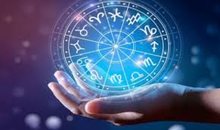
 Flash News
Flash News
A decomposed body is found in Kolonjë, initial suspicions
Accident in Saranda, car hits motorcycle, one injured
Why the release of Abi Malltez does not free him; much less Albania
Caught transporting firearms from Kosovo to Albania, young man arrested (NAME)
GJKKO releases Jamarbër Malltezi from house arrest
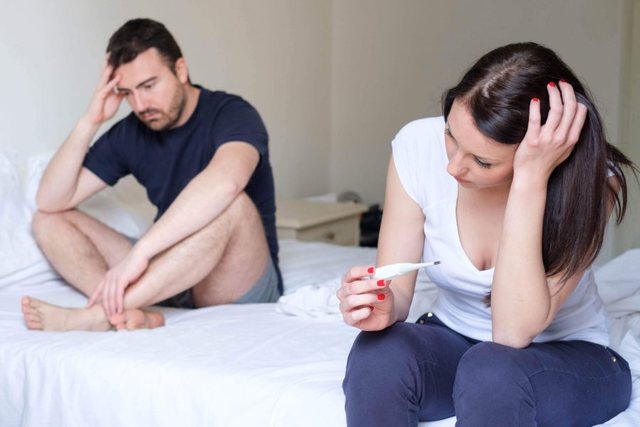
If you're thinking about becoming parents, it's important to understand that fertility isn't the same throughout life, for either women or men. The so-called 'biological clock' isn't just a myth that affects women; it affects men too, albeit in different ways.
Fertility in women
Women are born with a certain number of eggs, and as they age, this natural reservoir begins to dwindle. Fertility peaks in the early 20s, and experts recommend that the best age to get pregnant is between 20 and 30.
After the age of 32, fertility begins to decline significantly, and the second largest decline begins at the age of 37. After the age of 40, the possibility of conceiving a child decreases significantly, while after menopause, which usually occurs around the age of 50, it becomes almost impossible.
According to studies, a woman between the ages of 19 and 26 has a 50% chance of getting pregnant during the most fertile days of her cycle. This figure drops to about 33% for women between the ages of 35 and 39.
Male fertility
Unlike women, men do not have a hard biological limit to their fertility. They can produce sperm throughout their lives, but the quality and quantity of sperm declines with age. This increases the risk of difficulty conceiving, as well as some potential problems for the child.
Studies show that after the age of 40, a man's ability to father children drops by about 30%. However, every man over the age of 20 has the biological potential to be a parent.
How long does it take to conceive?
For young couples at the peak of their fertility, the average time to get pregnant is about 4 and a half months. But for couples over 40, this time can be extended to two years.
The data has been published in the scientific journal Human Reproduction, and clearly shows the importance of age for both women and men when it comes to creating a new life.
Latest news


WIIW expert in Politiko: Brain drain is steadily weakening the Albanian economy
2025-07-07 18:11:41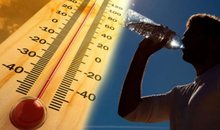
Heart health is at risk from extreme heat, here's what you should be careful of
2025-07-07 18:10:18
Today Gert Bogdani would celebrate, Edlira Çepani's touching dedication
2025-07-07 17:40:45



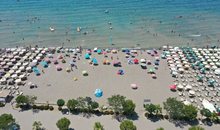


The striker severely accuses the Fenerbahce club: They tried to drug me
2025-07-07 16:21:03
A decomposed body is found in Kolonjë, initial suspicions
2025-07-07 16:03:31
Accident in Saranda, car hits motorcycle, one injured
2025-07-07 15:58:56

The most fertile age for men and women
2025-07-07 15:40:52
Locals, Rama candidate in 5 municipalities
2025-07-07 15:32:22
Blushi: Meta's criminal kidnapping, incomparable even to Navalny's in Russia
2025-07-07 15:20:34
Meet the iPhone 17 Pro, the main innovations in design and technology
2025-07-07 15:09:09
Why the release of Abi Malltez does not free him; much less Albania
2025-07-07 15:00:12
‘Lidhjet klienteliste’ të mjekëve mbushin recetat e pacientëve
2025-07-07 14:57:33
Poland imposes border controls with Germany and Lithuania
2025-07-07 14:48:15

Caught transporting firearms from Kosovo to Albania, young man arrested (NAME)
2025-07-07 14:37:47
Theo Hernandez flies to Saudi Arabia for medical check-ups
2025-07-07 14:26:47


Scorching heat, Greece orders mandatory work holidays
2025-07-07 13:54:25




Trump expects Netanyahu to discuss Gaza ceasefire
2025-07-07 12:54:27

GJKKO releases Jamarbër Malltezi from house arrest
2025-07-07 12:35:02
Tourism among contrasts
2025-07-07 12:31:01
IKMT action in Theth, starts demolition of unauthorized constructions
2025-07-07 12:24:18

The Tirana-Kamëz line is destroyed by urban fire
2025-07-07 12:00:24




Poor direction!
2025-07-07 11:16:01


Rama to gather the country's mayors on July 9
2025-07-07 10:43:31

Ohrid Natural Park on the way to UNESCO's "black list"
2025-07-07 10:25:58

Registrations for the new school year begin in e-Albania
2025-07-07 09:59:09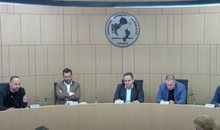
KAS decides the "fate" of the elections in four districts of the country today
2025-07-07 09:50:51
Rama does not give up on Vlora, visits the municipality again
2025-07-07 09:39:11


Fires in Gjirokastra, flames very close to cultural monuments
2025-07-07 09:12:49

Foreign exchange, the rate at which foreign currencies are sold and bought
2025-07-07 08:39:57
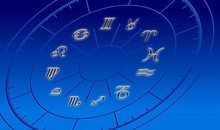
Horoscope, what do the stars have in store for you today?
2025-07-07 08:14:17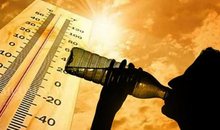
The week starts with scorching temperatures, the thermometer reaches 37°C
2025-07-07 07:58:36
Morning Post/ In 2 lines: What mattered yesterday in Albania
2025-07-07 07:45:15



Theologian: Behind Rama's idea for a Bektashi state in Albania, Israel is hiding
2025-07-06 20:57:48
Rama's rhetoric without standards, comparing Paris, London, New York with Vlora
2025-07-06 20:35:52
Vehicle goes off the road, driver dies in Kukës
2025-07-06 20:07:47
What is the possible agreement on the Gaza hostages and the ceasefire?
2025-07-06 19:47:09


Massive hiring in the Macedonian administration ahead of the elections
2025-07-06 18:37:19
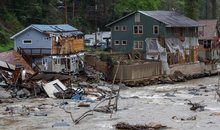
Texas tragedy: 59 dead and 27 girls still missing after devastating floods
2025-07-06 17:48:24
Albania for sale and purchase by Jared Kushner
2025-07-06 17:17:37
Kurti reacts to bomb threat in Parliament: Active hybrid war from Serbia
2025-07-06 16:55:59

After clashing with Trump, Musk says he's forming a new political party
2025-07-06 16:14:27
Turkey increases political influence in the Western Balkans
2025-07-06 15:48:14
Dalai Lama turns 90 amid global adoration
2025-07-06 15:27:46
Tax for singles or those who do not leave
2025-07-06 15:04:00
Earth farther from the Sun, but scorching heat! Why is this happening?
2025-07-06 14:51:26
Fire at the Incinerator/ Gjokutaj Ironizes: PS should name the city Qelbasan!
2025-07-06 14:35:10
The youth exodus and Rama's political carnivals!
2025-07-06 14:16:04
VIDEO/ Gang fight in Greece revealed, 12 arrested, including Albanians
2025-07-06 13:47:52

Albania in fire, Rama at sea (VIDEO)
2025-07-06 13:04:45
New tactic revealed! France uses "Jet Ski" to stop migrants heading to Britain
2025-07-06 12:41:13
Balluku is becoming "Veliaj 2"
2025-07-06 12:16:11


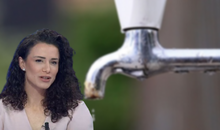

Why shouldn't we take cold showers during a heat wave?
2025-07-06 10:39:16
Fire alarm in the country, 6 fires still active, what is the situation so far?
2025-07-06 10:10:04

Vietnam and the US sign a customs agreement
2025-07-06 09:39:42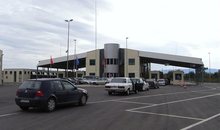

2-year-old girl drowns in family pool in Kosovo
2025-07-06 09:11:18
Albania, as a migration laboratory
2025-07-06 08:54:18